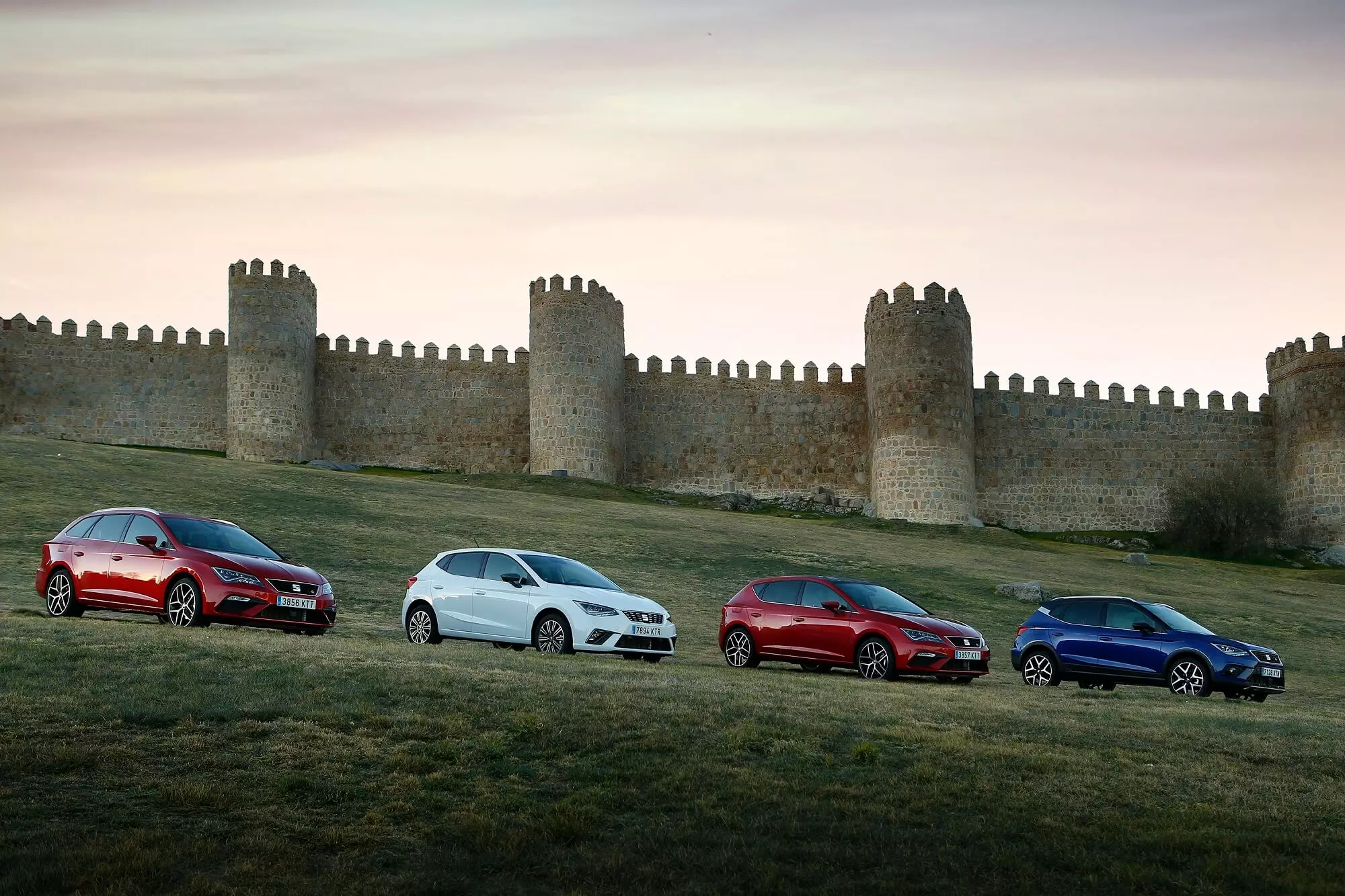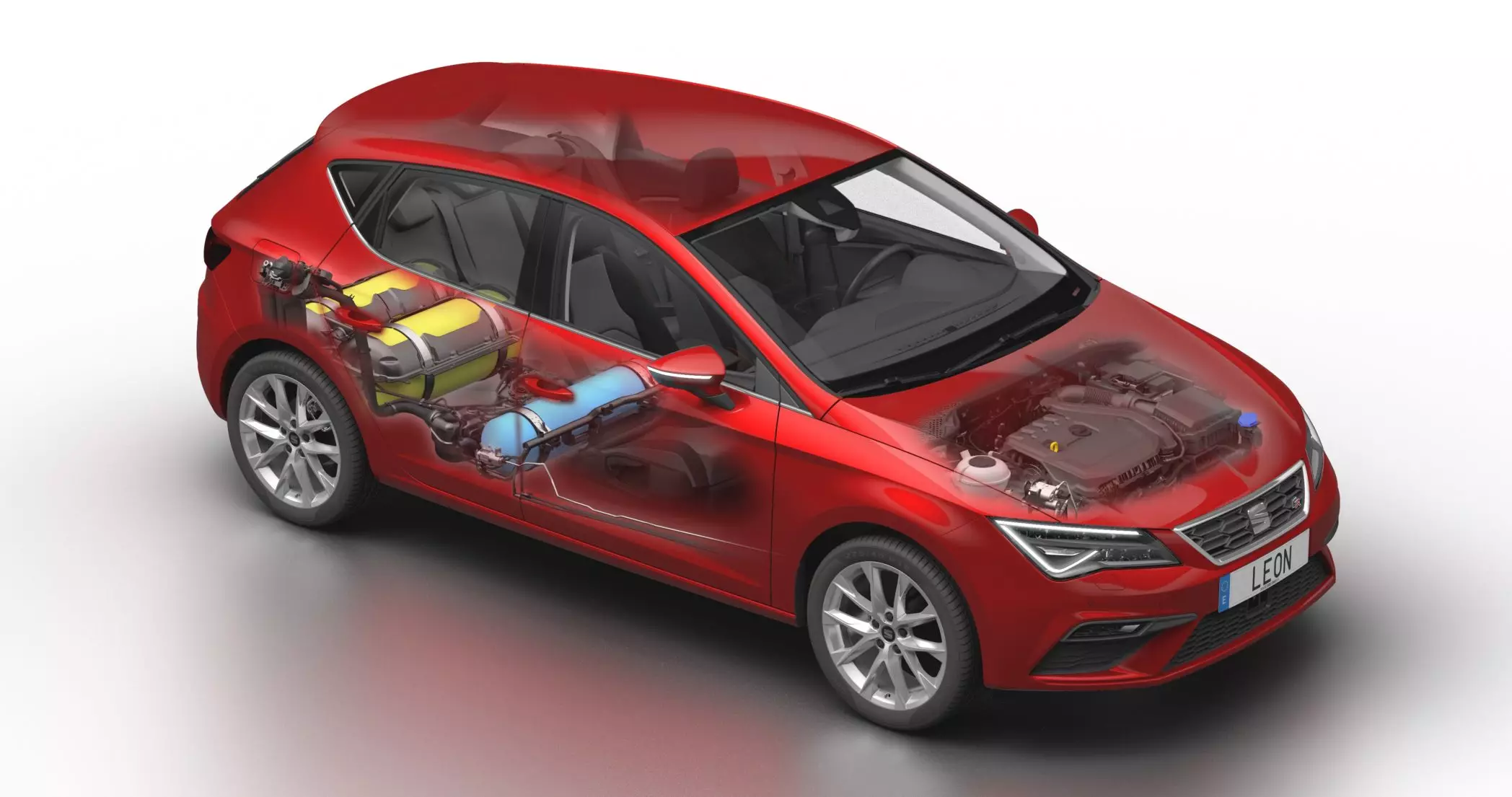Still unknown by a large part of the Portuguese public, the CNG (Compressed Natural Gas) is one of the many alternatives to conventional fossil fuels and one of the simplest ways to carry out the much-heralded decarbonization of the car fleet. Aware of this potential, SEAT “got to work” and developed a strategy to publicize this fuel.
SEAT's strategy to disseminate CNG is simple and is based on three pillars: offering a competitive product; promoting the technology to the public and promoting the growth of the supply infrastructure (so far one of the main obstacles to greater public acceptance of this fuel).
As for the product, the SEAT GNC range includes the Ibiza, the Arona and even the Leon. As far as the promotion of GNC to the public is concerned, the Spanish brand bets not only on traditional campaigns but also on several partnerships, one of them with GASNAM, an association that encourages the use of CNG at the Iberian level.

Finally, in the area of promoting infrastructure growth, SEAT is once again committed to partnerships, in this case with companies in the fuel sector (in Portugal, for example, it has a partnership with Dourogás) to promote number growth. and thus creating conditions for more people to join the GNC.
| CNG deposit capacity | Autonomy in GNC mode | Fuel tank capacity | Autonomy in gasoline mode | full autonomy | |
| SEAT Ibiza 1.0 TGI 90 HP | 13.8 kg | 360 km | 9 liters | 150 km | 510 km |
| SEAT Arona 1.0 TGI 90 CV | 13.8 kg | 360 km | 9 liters | 150 km | 510 km |
| SEAT Leon 5p 1.5 TGI 130 CV (manual) | 17.3 kg | 440 km | 9 liters | 140 km | 580 km |
| SEAT Leon 5p 1.5 TGI 130 CV (DSG) | 17.3 kg | 440 km | 9 liters | 140 km | 580 km |
| SEAT Leon ST 1.5 TGI 130 CV (manual) | 17.3 kg | 440 km | 9 liters | 140 km | 580 km |
| SEAT Leon ST 1.5 TGI 130 hp (DSG) | 17.3 kg | 440 km | 9 liters | 140 km | 580 km |
The environmental advantages of CNG
As we've already told you several times, the GNC has both environmental and monetary advantages. At an environmental level, a CNG model emits 25% less CO2 compared to an equivalent gasoline car and 95% less particulate matter and 85% less nitrogen oxides (NOx) compared to an equivalent diesel.
Subscribe to our newsletter
This “cleaner” combustion also allows for less deterioration of the mechanical components (and consequently greater durability) and it is only necessary to carry out routine inspections every 15 thousand kilometers. As for the maintenance of the gas circuit, this has to be done in a specialized workshop (in Portugal, the SEAT Center Arrábida is already able to do this).
Rodolfo Florit, General Director of SEAT PortugalSEAT is determined to accelerate CNG as an alternative to traditional fossil fuels. A solution that could be more advantageous for those with a more urban lifestyle
Finally, when a natural gas car consumes renewable bio methane, it ends up with neutral CO2 emissions. In view of this, only a 100% electric vehicle charged with electricity from 100% renewable sources can be greener.

The financial advantages of GNC
At the monetary level, the CNG makes it possible to reduce (a lot) the costs per kilometer (up to 50% compared to a gasoline model and up to 30% compared to a diesel).
Rodolfo Florit, General Director of SEAT PortugalThe impetus given by European recommendations and regulations regarding the expansion of the supply network is creating the conditions for investing in the commercialization of these hybrid vehicles. In this context, SEAT Portugal recently signed a partnership protocol with Dourogás, a group comprising natural gas distribution and marketing companies
As for taxation, SEAT states that, as its CNG models have a fuel tank with only 9 liters of capacity, they are seen in Portugal as being exclusively CNG (despite being able to run on petrol).

This allows for a reduction in Autonomous Taxation to 7.5%, 15% and 27.5% in each of the three tiers (instead of 10%, 27.5% and 35% in diesel models), a reduction to 40 % in the ISV and also allows companies to deduct 50% of the VAT paid on the purchase of these vehicles (up to 37 500 euros). There is also a 50% VAT deduction on these fuels.
